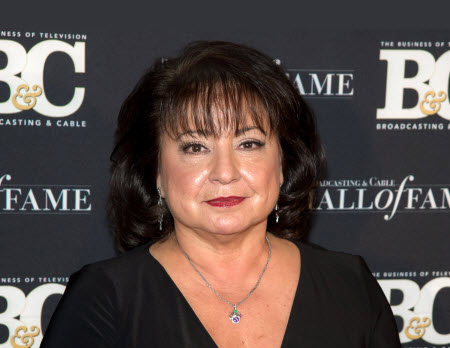Mediacom's Italia Commisso Weinand: Tough but Fair
The smarter way to stay on top of the multichannel video marketplace. Sign up below.
You are now subscribed
Your newsletter sign-up was successful

Related >Making the Right Moves: Distributors Strategize in a New Era of Programming
The outspoken Mediacom Communications programming guru is the perfect foil to her brother and boss, Mediacom founder, chairman and CEO Rocco Commisso, himself a pioneer in programming-distributor issues; together they’ve racked up deals over the past several decades that have served as a template for the rest of the industry.
Through it all Commisso Weinand, executive vice president of programming and human resources, has earned a reputation of being a tough but fair negotiator, willing to go to the mat for Mediacom subscribers but also willing to pay a fair price for content.
A lot has changed in the nearly 40 years since she started in the programming business. She has a team of about eight people working on deals, with a core group handling most of the negotiating work, including her, group vice president of programming Barry Paden, vice president of programming Joseph Appio, former VP of programming and now a consultant Glenn Goldsmith and VP of advanced services John Woods.
“We have a very small, tight-knit group,” Commisso-Weinand said. “We do the same thing that Comcast and Charter and Verizon do with less than a third of the staff.”
Related >Cox's Andrew Albert: Engineers on Board
For Mediacom, that means maintaining about 80 programming contracts with cable networks and countless others with broadcasters for retransmission-consent agreements.
The smarter way to stay on top of the multichannel video marketplace. Sign up below.
Pricing remains the core issue in most negotiations — Commisso Weinand said retrans fees double every three years — although new matters like stacking rights are increasingly prevalent. And while programmers grapple with trying to recapture lost audiences, the cable veteran said a lot of times distributors are caught in the middle.
Commisso Weinand makes no bones about her displeasure over high programming costs — she likes to call it “when greed exceeds common sense.” But she also has been around long enough to recognize when programmers are caught in a pickle. In trying to attract a younger audience that only wants content when and where it wants it (and often doesn’t want to pay for it), programmers are sacrificing brand identity.
“What I think you’re seeing is, the ecosystem is falling apart in many ways,” Commisso Weinand said. “Content is so disparate and there are so many channels, brands are kind of losing. People don’t look at Fox or NBC; they look at what do they want to watch. It’s all over the map. There’s no loyalty.”
That could be a problem for some programmers by reducing the impact of one of the bigger tools in their negotiating belt — blackouts.
Related >Verizon's Ben Grad: Giving the People What They Want
Commisso Weinand recalled when HGTV and Food Network – two of her personal favorites – went dark to Cablevision Systems customers in 2010 over a carriage dispute. While she was initially upset, as the blackout went on — it lasted about three weeks — she found similar content elsewhere.
“I adapted,” Commisso Weinand said. “I went to the Travel Channel; I went to PBS. I started discovering new channels that had similar content. That is where programmers don’t quite get it. I’m not going to go crazy and switch providers for two channels. Those days are over.”
